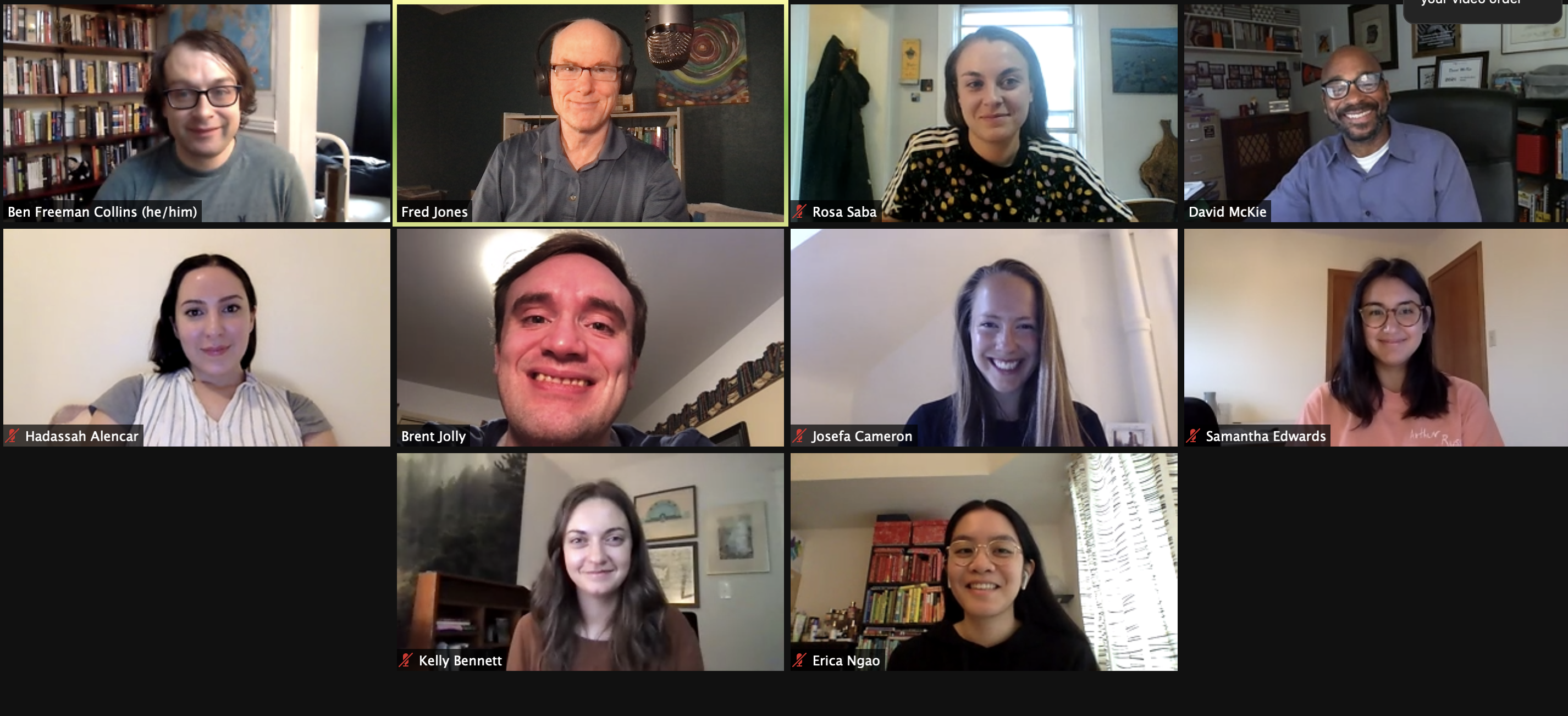Many aren’t familiar with the phrase “data journalism,” let alone know what it means. Fred Vallance-Jones, a pioneer in the field and an associate professor in the School of Journalism, is not surprised.
“Not even the scholars agree on a definition,” says Vallance-Jones with a laugh. “From our point of view, it’s working with electronic data as one more tool in reporting. We teach journalists to navigate the information within those databases and spreadsheets, those rows and columns, from government sources to open sources. There’s a lot of technical overhead with that, and a great deal of information within, so we’re teaching reporters how to use the tools to unlock it.”
The intensive, one-week program took place in late June—the 14th year it has been offered. While a few journalism students typically enroll in the Data Journalism School, the majority of desks in the class are occupied by working journalists—some from the country’s top newsrooms—who want to expand their knowledge base. The class is kept to a small size, with usually a dozen spots available on a first come, first served basis: the intimate setting, according to Vallance-Jones, has proven effective.
“When we’re in person,” says Vallance-Jones, “we teach the program in an intimate space that really makes the course an amazing experience for everyone, including the people teaching it. Twelve students, five days, working together, solving problems, plus the social element, heading out as a group to enjoy Halifax. In fact, last year we increased to 22 people, in two groups, but we found this took away from the one-on-one experience, so this year we went back to 12.”

Like many educators during Covid-19, Vallance-Jones had to transition the data school from in-person teaching to an online format in 2020. Now that he has delivered the program online twice, Vallance-Jones sees how things he has learned from teaching online will benefit the program when it is held in person again.
“The online version is a little different, of course, and last year actually let us test some ideas for teaching technical content. For example, I am now persuaded that, for live classes, having some of the more technical material provided in advance, online, so people can learn at their own speed, can really help: and then use the in-person class time for discussion and problem solving, for the more conceptual things that are beyond, you know, which button to press.”
Vallance-Jones is quick to point out that he does not teach the course on his own, and that guest instructors, specialists in the field, are brought in to teach it with him. While usually this scenario sees a new person come in each year, for the past two years the guest instructor has been David McKie. McKie, in fact, helped Vallance-Jones develop the program in its earliest iteration.
As well as teaching at King’s, McKie teaches data journalism at Carleton University and Ryerson University. He is also deputy managing editor at Canada’s National Observer and worked for 26 years as an investigative producer with CBC.
Recently the Canadian Association of Journalists (CAJ), a national organization and the one news association run entirely by journalists, recognized Vallance-Jones and McKie for outstanding contributions to Canadian journalism with the 2021 Charles Bury Award. In its announcement, the CAJ praised the two journalists’ “pioneering work in the field of computer-assisted reporting/data journalism in Canada over the past several decades in both newsrooms and classrooms across the country.”
In addition to being run by a CAJ award-winning journalist, the Data Journalism School also benefits from a partnership with the CAJ.
“As journalists,” says Vallance-Jones, “the CAJ is ‘our’ organization so it’s a wonderful group to partner with. They’ve been supporting us for a while now and have suggested they’d like to keep it going. This year, the CAJ funded four bursaries for the online data school, including three for low-income, freelance journalists.”
Vallance-Jones anticipates that eventually, all journalists will incorporate data knowledge into their workflow. Larger newsrooms, like national media outlets, often have specialists on staff whose primary role is data journalism, He can even envision a time when the phrase ‘data journalism’ falls out of use because it will be such a commonplace journalistic tool. Most of the information in the world, he says, is contained in data and so, when a journalist limits their research to more traditional sources it means they are ignoring a huge volume of information.
Vallance-Jones notes that a number of data specialists working in big newsrooms—some of them leaders in the field—have attended the data school. Yet most of our news tends to come from smaller and mid-size newsrooms, like your local TV news and newspapers. This is where Vallance-Jones anticipates data journalism will offer the greatest benefit to reporters.
“There’s such pressure on the news business today,” he says, “we barely have enough reporters to cover the basics every day. So we believe that every reporter should know how to open a spreadsheet and look at the City Hall budget and be able to figure out the trends in it. This is where we’re heading. A certain level of data knowledge becoming a very basic reporting skill.

